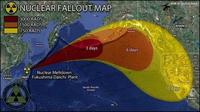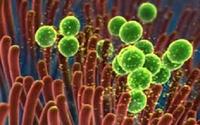-
Sewage treatment removes widely used home and garden insecticides from wastewater
Even though sewage treatment plants are not designed to remove tiny amounts of pesticides, they do an excellent job of dealing with the most widely used family of home and garden insecticides, scientists reported. The use of pyrethrins, derived from chrysanthemum flowers, and the related synthetic pyrethroids, has been on the increase during the last decade. Researchers found that advanced sewage treatment reduced the levels of pyrethroids by more than 97 percent.
-
-
Making people invisible to mosquitoes
Mosquitoes are more deadly to humans than any other animal. Their bites transmit malaria and other diseases that kill an estimated one million people around the world each year. In the United States, mosquitoes spread rare types of encephalitis, an inflammation of the brain. They also transmit heartworms to pet dogs and cats. Scientists described discovery of substances that occur naturally on human skin and block mosquitoes’ ability to smell and target their victims – in effect, offering people, pets, and livestock with an invisibility cloak against these blood-sucking insects.
-
-
Wildfires to worsen with climate change

Air quality has vastly improved over much of the United States in the past forty years as a result of government efforts to regulate emissions. Gradual climate change may contribute in the coming years to increases in significant, disruptive events like severe storms, floods, and wildfires. A Harvard model predicts wildfire seasons by 2050 will be three weeks longer, up to twice as smoky, and will burn a wider area in the western United States. These increasing wildfires may erase some of the progress made on air quality.
-
-
Fukushima radioactive plume to reach U.S. next year

The radioactive ocean plume from the 2011 Fukushima nuclear plant disaster will reach the shores of the United States within three years from the date of the incident, but is likely to be harmless, according to a new study. While atmospheric radiation was detected on the U.S. west coast within days of the incident, the radioactive particles in the ocean plume take considerably longer to travel the same distance.
-
-
Irradiated mosquitoes provide malaria vaccine
A new malaria vaccine is derived from mosquitoes that have been irradiated but not killed. The radiation critically weakens the malaria parasite, Plasmodium falciparum, which is extracted from the insects’ salivary glands and administered intravenously to subjects.
-
-
Rapid response, imaging of injuries aided Boston Marathon bombing victims
According to the Centers for Disease Control and Prevention (CDC), bombing survivors have the highest incidence of injury to soft tissue and musculoskeletal systems with the most extreme injury being traumatic amputation, which is reported in up to 3 percent of cases. The Boston Marathon bombings resulted in three fatalities and 264 casualties, with the most severe injuries involving lower extremities of those located closest to the blasts. Blast injuries within civilian populations are rare in the United States, so when they do occur they challenge the medical community rapidly to respond to concurrent evaluation and treatment of many victims.
-
-
Drones help kill bugs dead
The Florida Keys Mosquito Control District is considering using a drone to spot shallow-water pools where mosquitoes breed along the Keys. The 2.2-pound, 2.5-foot-long drone would use infrared cameras to locate the shallow pools and allow the district rapidly to treat those areas with larvicide.
-
-
U.S. radiation exposure guidelines based on unvalidated assumptions: toxicologist
In the 1950s regulators came to adopt the linear no threshold (LNT) dose-response approach to ionizing radiation exposure, which was later generalized to chemical carcinogen risk assessment. A UMass Amherst toxicologist now offers further evidence to support his earlier assertions that two geneticists deliberately suppressed evidence to prevent the U.S. National Academy of Sciences (NAS) from considering an alternative, threshold model, for which there was experimental support. “This isn’t an academic debate; it’s practical, because all of our rules about chemical and low-level radiation are based on unvalidated assumptions and scientific panel decisions made without sound evidence,” the toxicologist says.
-
-
Bacteria in drinking water are essential to keeping it clean

Researchers point the way to more sophisticated and targeted methods of ensuring our drinking water remains safe to drink, while still reducing the need for chemical treatments and identifying potential hazards more quickly.
-
-
In arid regions, irrigation can increase malaria risk for a decade
Malaria risk in arid regions often rises when irrigation is introduced, due to increased amounts of standing water that serve as mosquito breeding sites. Globally, the number of people at risk of contracting malaria due to proximity to irrigation canals and related infrastructure has been estimated at 800 million, which represents about 12 percent of the global malaria burden. New irrigation systems in arid regions benefit farmers but can increase the local malaria risk for more than a decade — which is longer than previously believed — despite intensive and costly use of insecticides, a new University of Michigan-led study in northwest India concludes.
-
-
Groundwater in Vietnam threatened by a new source of arsenic
In Southern Asia, an estimated 100 million people have been exposed to risks from groundwater contaminated with naturally occurring arsenic. The tainted water, used for drinking, agriculture, and industry, has resulted in a variety of serious health risks, including cancer. “Dig deep” to avoid naturally occurring arsenic contamination has been promoted as an answer to obtaining safe water in South Asia, but arsenic has been found in numerous deep wells drilled in the Mekong Delta region of southern Vietnam.
-
-
Effective screening of airline passengers arriving from areas of infectious disease outbreaks
New study shows that exit-screening at thirty-six airports would have assessed all air travelers at risk of transporting H1N1 out of Mexico at start of 2009 pandemic. Screening at 99 percent of the world’s international airports could have been forgone with negligible missed opportunities to prevent or delay the spread of disease. Screening at just eight airports worldwide would have led to the assessment of 90 percent of all at-risk air travelers.
-
-
Lawmakers criticize FDA, CDC for Cyclospora outbreak foot-dragging
Lawmakers want to know why it has taken so long for food-safety authorities to respond to the cyclospora outbreak which, so far, has sickened at least 418 people in sixteen states. They also want to know why the FDA and CDC have been tight-lipped about the specific products carrying the parasite — health authorities in Nebraska and Iowa have pointed to bagged salad containing romaine and iceberg lettuce as well as carrots and cabbage as the source – and who is the manufacturer of the contaminated products.
-
-
New journal articles offer useful information for farmers, soldiers
A new study of the Research Program for Deployed Warfighter Protection (DWFP) program discusses the program’s accomplishments, including the rodent feed-through technique with insecticidal baits for controlling phlebotomine sand flies; developing attractive targeted sugar bait for use against mosquitoes and sand flies; developing a lethal oviposition trap for container-breeding mosquitoes and evaluating using pyriproxyfen (an insect growth regulator) and autodissemination by these mosquitoes to block their reproduction and metamorphosis; defining the limitations of insect repellents against infected vectors; and developing the Florida Fly Baiter and several types of novel sprayer equipment for insecticide application.
-
-
CDC warns of parasites-related illnesses in fifteen states
The Center for Disease Control and Prevention (CDC) announced on Monday that the number of Cyclospora cases has risen to 373 in fifteen states. State and federal health officials have not named the food or water source responsible for to the outbreak, but fresh produce is the likely source.
-
More headlines
The long view
A Shining Star in a Contentious Legacy: Could Marty Makary Be the Saving Grace of a Divisive Presidency?
While much of the Trump administration has sparked controversy, the FDA’s consumer-first reforms may be remembered as its brightest legacy. From AI-driven drug reviews to bans on artificial dyes, the FDA’s agenda resonates with the public in ways few Trump-era policies have.
